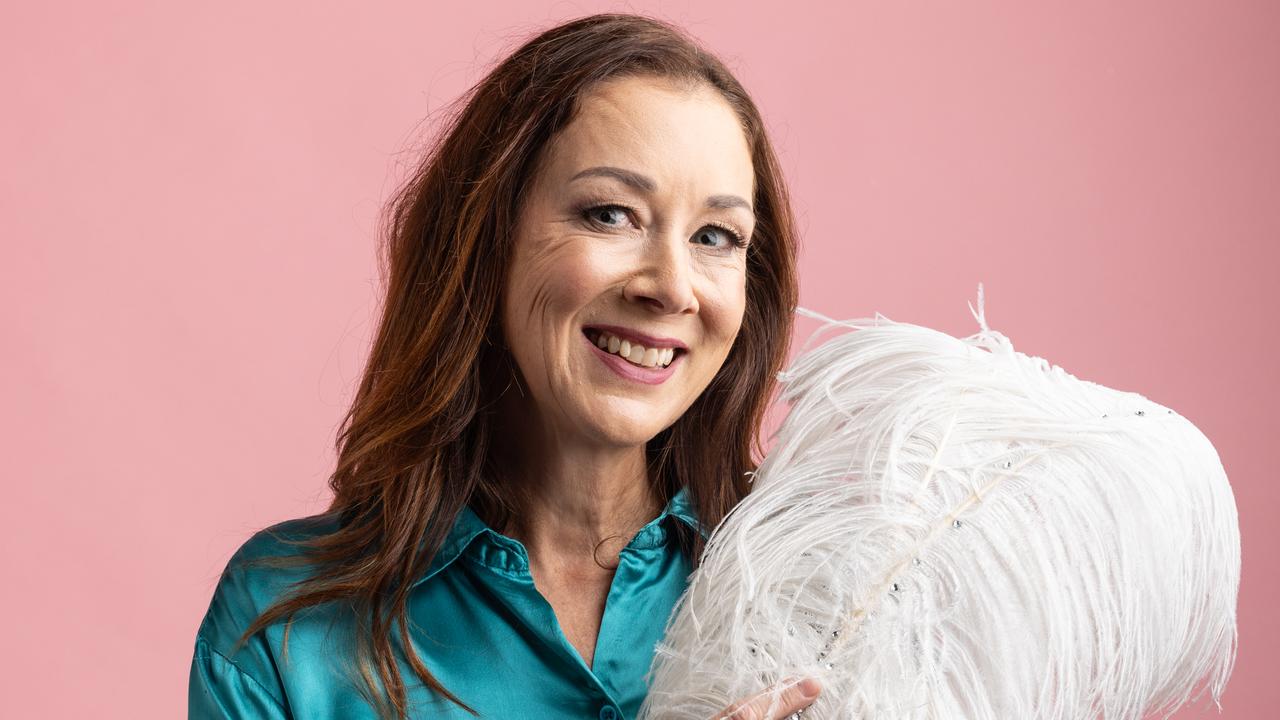Brisbane chef Dan Arnold competing in world’s toughest cooking competition
A chef is preparing to represent Australia in the gastronomic equivalent of the Olympics.
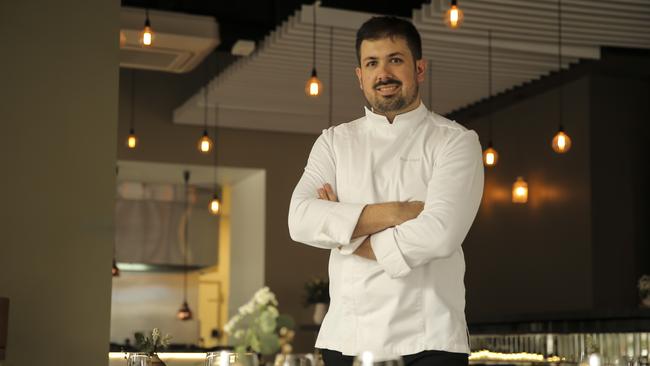
QWeekend
Don't miss out on the headlines from QWeekend. Followed categories will be added to My News.
A couple of months out from an Olympics you’d expect a competitor to be in heavy training.
Dan Arnold is no different. The chef, who owns top-flight Brisbane eatery Restaurant Dan Arnold, and co-owns French favourite La Cache a Vin and year-old Pneuma, is representing Australia at the Bocuse d’Or, considered the gastronomic equivalent of the Olympics, in Lyon, France, on January 26-27 next year.
And while the 37-year-old father of two is not knocking out push-ups and sprint sets, he is working up a sweat in intense preparations for the marathon pressure test that is a five-hour, 35-minute cook-off on competition day.
Choosing what to create for the contest’s two set-theme presentations, overseeing the concept and manufacture of the platter on which one will be displayed, working with mentors and coaches – one is flying in from Sweden – training with his competition assistant, Melbourne commis chef Chris Milligan, 20, (each contestant is allowed an offsider aged 22 or under) and cooking fundraising dinners to help bankroll the whole complicated operation, makes for a seriously hectic few months.
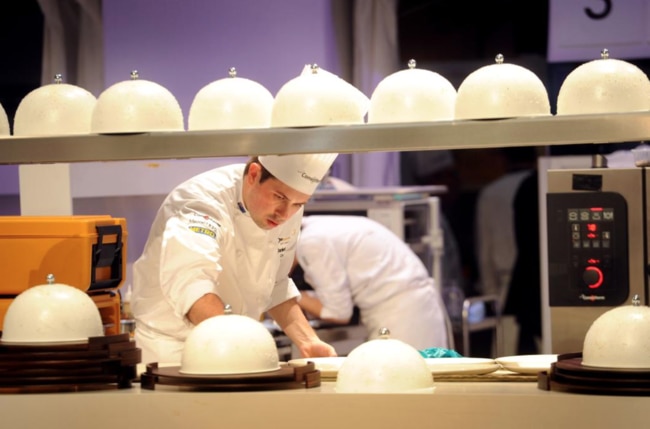
The Bocuse d’Or, held every two years, is a worldwide chef competition conceived in 1987 by the late Paul Bocuse, the legendary French chef renowned for shaking off the shackles of the country’s traditional heavy cookery to develop the lighter, more delicate food known as nouvelle cuisine.
He came up with the idea of a culinary competition to showcase chefs’ talents in front of an audience.
Chefs from 72 countries are whittled down via national and continental competitions to 24 for the final, with 12 chefs cooking one day and 12 the next, side-by-side in identical kitchens in a huge convention centre in the French gastronomic heartland of Lyon.
If they’re not competing, elite chefs might coach or judge. Danish chef Rasmus Kofoed, whose Geranium restaurant in Copenhagen was named the world’s best restaurant in 2022, won the Bocuse in 2011 after previously winning silver and bronze; leading chef Clare Smyth, with a three-Michelin-star restaurant in the UK and Oncore in Sydney, became the Bocuse d’Or UK president last year; and premier American chef and restaurateur Thomas Keller has been instrumental in training and organising the US team, which took the title in 2017.
Arnold has already competed in the event, taking 8th place in 2017, the highest spot achieved by an Australian, with other competitors over the years including George Calombaris, Scott Pickett (Melbourne chef/owner of several restaurants and Australia’s 2025 Bocuse d’Or jury member) and Brisbane’s Shannon Kellam (ex-Montrachet).
Now Arnold is returning for another attempt, partly to dive back into what he believes is the ultimate challenge for a chef, partly to drive Australian interest in the value of the competition, and also as a homage to a man who meant so much to him during his years honing his craft in France.
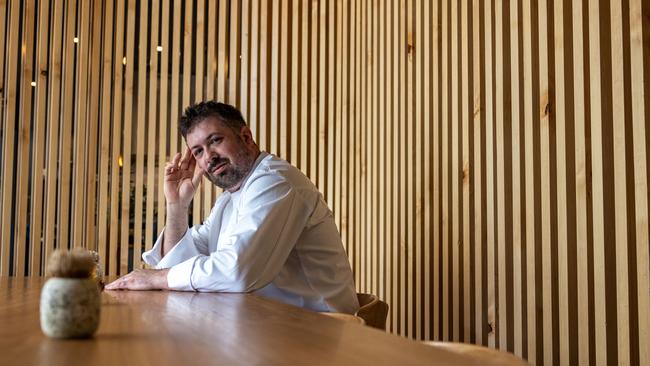
Arnold, who grew up in Tarragindi on Brisbane’s southside, took his first step into the food world working at Sizzler as a high school student but a passion for the kitchen – he also worked as a grill cook at the Norman Hotel – slowly took hold. “Just the adrenaline of it,” he says. “I was hooked from day one.”
Arnold started a science-law degree but abandoned it 18 months in, “I just knew it wasn’t for me”, completed his apprenticeship at the now-defunct CBD riverfront restaurant Il Centro and then, shortly after, headed for France. “I didn’t want to go to London like everyone else,” he recalls as we speak in the Scandi-style dining room of the Fortitude Valley fine dining restaurant he opened in 2018 on returning from France to live, and where delicate amuse bouche precede a choice of polished tasting menus.
But his expected casual working holiday bloomed into a seven-year, full-blown passion for working in top-tier restaurants.
“I was hooked by the restaurant culture – I did a couple of ‘stages’ in Paris with Joel Robuchon, Pierre Gagnaire, people like that.”
He then worked at the three-Michelin-star l’Espérance in central France for a year, and then spent six with Serge Vieira at his eponymous two-Michelin-star restaurant further south in the hot-springs spa town of Chaudes-Aigues. Vieira, who Arnold says became a “father figure” to him, had won the Bocuse d’Or in 2005, and eventually encouraged Arnold to enter himself. When Vieira passed away last year aged 46, it cemented Arnold’s desire to compete again.
“The opportunity came (mid this year) to slide in from coach as I was last time and be a candidate this time and I just thought it was the right year to do it, because it’s going to be a lot about the homage to Serge, very much a tribute to him this year, and I’d like to be a part of it to do him proud,” Arnold says.
In order to get their hands on the revered winner’s trophy, a gold statuette of Bocuse in his chef wear, competition candidates must complete two tasks: prepare a hot platter of food to a set theme and then serve it to 16 people (the 2025 platter must include venison, foie gras and tea used in specific ways and, among other things, a garnish made from fruits unique to the competitor’s country); the other task involves preparing the same number of identical plates in answer to another theme (to be announced on November 16).
And they must prepare and serve all of this in front of a judging jury and a grandstand of thousands of spectators cheering on their national teams while playing musical instruments, honking horns and ringing cowbells. With a leaderboard, waving flags and a podium for the top three, it has all the elements of a frenzied sporting competition.
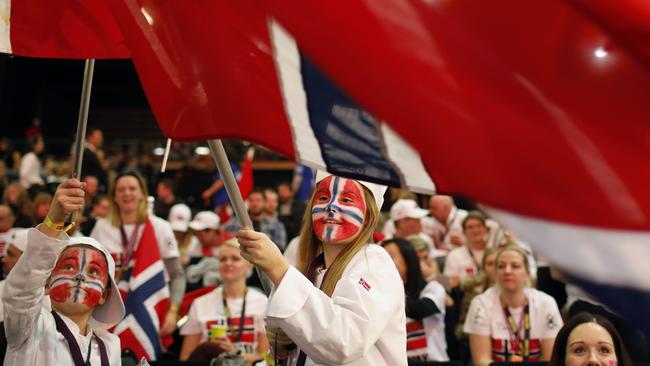
Despite the competition’s prestige, it’s not front of mind for many Australian chefs, but Arnold thinks competing has huge benefits.
“The big thing for me is all the cutting-edge innovation in restaurants often comes from this competition,” he says. “New techniques, new approaches to cooking processes, things like that.” Networking opportunities also abound but he says many chefs are concerned about the time away from work, and lack of government support or large-scale sponsorship to allow them to be paid while training. “It would be great to say in a few years’ time that the government is funding and supporting this here,” Arnold says.
Representatives of some countries are selected up to two years in advance, such as in the US, where the candidate and commis train full-time for the final year, with a head coach, assistant coaches, advisors and a designer.
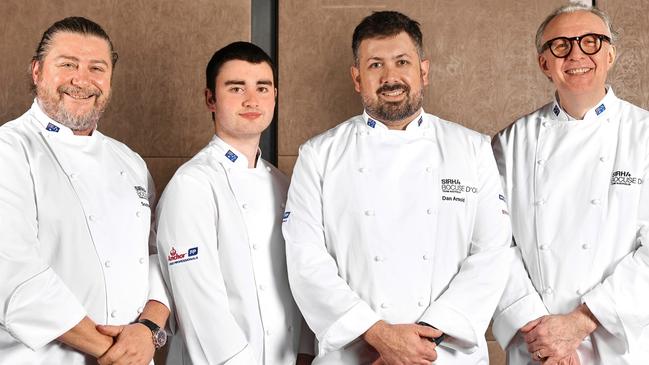
Meanwhile, Arnold has been brainstorming with Restaurant Dan Arnold chef and culinary Olympics veteran Shane Keighley, his Swedish coach Jimmi Eriksson who placed fourth at the 2023 Bocuse d’Or is coming for a week this month and a week in January, and he’s continuing to develop concepts – even using some vegetable or garnish ideas in dishes at his flagship restaurant.
Arnold says he and Milligan will also continue to get used to working together during restaurant service and practice sessions and he plans to complete about 10 run-throughs of the entire competition process once he nails down exactly what he’ll be cooking.
“We’ll also have blaring music here probably when we do run-throughs because (at the competition) it’s so noisy you can’t hear yourself think,” Arnold says.
He has also been cooking fundraising dinners to help with the expensive logistics.
“You’ve got to get a team of five or six (Scott Pickett, team coach – Melbourne’s Philippe Mouchel of Philippe Restaurant who opened Paul Bocuse’s first restaurant outside France for him – the two competitors and the candidate for next time) to the other side of the world just after Christmas and a whole lot of excess freight,” he says, revealing that up to 500kg of eq
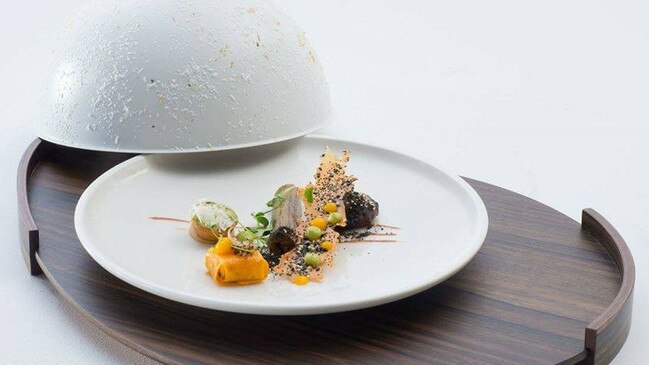
uipment will have to be flown north. “We get there on January 20, we have a base preparation kitchen where we go in and organise our final materials and equipment, receive all our stock, vegetables, produce … weigh our recipes, things like that take a few days, and to get acclimatised and get set.
“I’ll also be taking two or three of the guys from here with me as my assistants, we need help with sourcing ingredients, hiring a van, going to the markets, going back to the (kitchen), there’s a lot of logistics that go on.”
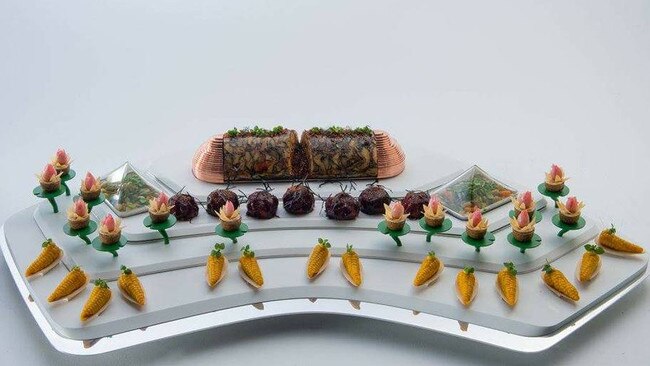
He has his work cut out to break through what is largely a European stranglehold, with France winning eight of the 19 Bocuse d’Ors, and Scandinavian countries nailing nine.
“The big thing this time around for me is restraint,” says Arnold, who prepared for his first attempt in France as he was living there at the time. “I was very much influenced last time by these big-time chefs, they were coaching and coming and tasting and I probably listened too much to everyone and tried to appease everyone and lost a bit of focus on what I really should have been doing.”
This time he’s running his own race, far away from France, preparing an audacious, relatively quick-fire bid to improve on his position last time, to shine a light on Australia’s culinary scene and pay tribute to the man who helped set him on his professional path. ■
To donate to the Australia Bocuse d’Or Team visit:
https://www.gofundme.com/f/bocuse-dor-team-australia-2025



